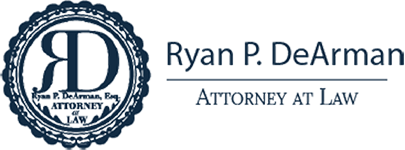FAQs at Ryan P. DeArman Attorney at Law
At Ryan P. DeArman Attorney at Law, I understand you may have questions about the legal process you are considering or currently navigating. My expertise in a range of legal services including bankruptcy relief, business formation, estate planning, and more. Below you will find answers to some of the most frequently asked questions I encounter in my practice. My commitment is to provide you with clear, concise information to help guide you through your legal journey.
Why Choose My Firm Among Others in Moore, and Norman, OK?
My firm prides itself on delivering unparalleled personalized service. When you choose Ryan P. DeArman Attorney at Law, you interact directly with me throughout your case, ensuring a personalized and focused approach to your legal needs.
How Soon Will Creditors Stop Contacting Me After Filing for Bankruptcy?
Upon engaging my firm for your bankruptcy case and providing an initial payment of $300.00 for my services, you can inform creditors that they are to cease contact with you and direct any communication to my office.
Can Filing for Bankruptcy Stop Wage Garnishment?
Yes, filing for bankruptcy will immediately halt any wage garnishment, providing relief as you navigate through the bankruptcy process.
Are Back Child Support or Alimony Dischargeable in Bankruptcy?
No, obligations such as back child support and alimony are excepted from discharge in bankruptcy proceedings.
Do I Need to Attend Court if I File for Bankruptcy?
Typically, filing for bankruptcy will require at least one appearance in court, usually for a meeting of creditors, though this is now via Zoom.
Understanding Chapter 7 and Chapter 13 Bankruptcy
Chapter 7 bankruptcy offers a fresh start by allowing the discharge of many types of debt, though it requires passing a means test. Chapter 13 bankruptcy, on the other hand, involves repaying creditors over a 60-month period based on disposable income, after which undischarged debt is released.
Choosing Between Chapter 7 and Chapter 13 Bankruptcy
The choice between Chapter 7 and Chapter 13 bankruptcy primarily hinges on the means test and a detailed consultation with me to determine the most suitable path based on your unique financial situation.
Requirement for Tax Returns in Bankruptcy Proceeding
You are required to submit the last two years of tax returns when filing for bankruptcy. In some Chapter 7 cases, you may also need to provide your next year’s tax return.
Pre-filing Requirements for Bankruptcy
Before you can file for bankruptcy, you must complete a credit counseling course and provide comprehensive financial documentation including pay stubs, bank statements, tax returns, vehicle titles, and a creditor listing.
Debts Discharged in Bankruptcy
No. Student loans and domestic support obligations, and some taxes do not get discharged.
Qualifying for Bankruptcy
Eligibility for bankruptcy is determined by the means test, a comprehensive evaluation conducted by your attorney to ascertain what bankruptcy chapter you can file.
Impact of Bankruptcy on Loans and Assets
Bankruptcy does not automatically eliminate liens against your property. A motion must be filed to remove any liens as part of your case. Most personal assets, such as retirement savings, are exempt from bankruptcy proceedings under Oklahoma law.
For personalized assistance or further questions, please do not hesitate to contact me at (405) 501-7640. My office is located at 1901 N. Moore Ave. Ste. 14, Moore, OK 73160. I am here to help in your time of need, ensuring professional and dedicated legal support every step of the way.
